Yannis Andritsopoulos, UK correspondent wrote his article in Ta Nea outlining Wednesday 18 May's session at the ICPRCP. Below the statement from the DCMS published in that article:
“The UK has a longstanding position on this issue that has not changed - the Parthenon Sculptures were acquired legally in accordance with the law at the time. The British Museum operates independently of the government and free from political interference. All decisions relating to collections are taken by the Museum's trustees.”
"There has been no change to the UK's position on the Parthenon Sculptures and no change to the nature of our formal engagement with Greece on the issue."
Below, a statement sent to Yannis Andritsopoulos by the British Museum and published in Ta Nea on 20 May 2022:
The British Museum can confirm that no new talks with the Greek government have taken place or are planned regarding the repatriation of the Parthenon Sculptures.
We have always enjoyed a positive and collaborative relationship with UNESCO and with colleagues from institutions all around the world – including the Acropolis Museum in Athens. The Museum is always willing to consider requests to borrow any objects from the collection, we lend between 4000 – 5000 objects every year. For instance, 170 ancient Hellenic objects are touring Australia and New Zealand where they will reach and inspire new audiences before returning to the Museum.
These beautiful works of art are loved by a world-wide community and we believe that public access should lie at the heart of these conversations, too often discussions are limited to legalistic and adversarial context instead of focusing on how to share the sculptures with a wider world.
The role of a modern museum is to provide a place where these objects spark creativity and help people understand the past, shape the present and prepare for the future. We have always believed that these works help visitors embrace that vision.
The ancient city-state of Athens was one of the Eastern Mediterranean's leading nations, a cultural and military powerhouse that rivalled mighty Persia. Millions of visitors to the British Museum benefit from a permanent collection that captures this vast arc of history that has had a lasting impact on the emergence of the modern world.
Deepening public access, creating new ways and opportunities for collections to be shared and understood right across the world, remains at the core of what the British Museum seeks to achieve.
On Monday 23 May, Yannis Andritsopoulos contacted the DCMS once more and reported in Ta Nea on Tuesday 24 May 2022:
The British government made a 180-degree turn for the Parthenon Sculptures yesterday, following the tactic of "I said that I would – now I’ve changed my mind"(«είπα - ξείπα») regarding the possibility of talks with Greece.
Speaking to the "Ta Nea", the representatives of Downing Street and the British Culture Minister denied that a meeting is planned on the return of the Sculptures, just six days after UNESCO announced that London had agreed to engage in dialogue.
What is striking, however, is that they made it clear for the first time that they do not intend to change the law prohibiting the British Museum from ceding objects from its collection, which would pave the way for the return of the masterpieces.
"The UK government has not agreed to hold formal talks on the Parthenon Sculptures," Culture Minister Nadine Dorries' spokeswoman told Ta Nea.
This assertion is certainly not accurate: last Tuesday, UNESCO's Intergovernmental Committee on the Return of Cultural Goods (ICPRCP) announced that the British Government had proposed holding a meeting between Culture Minister Lina Mendoni and the British Secretary of State for Culture Lord Parkinson's. Greece accepted the proposal and the meeting "will be set in due course", noted UNESCO, which last September had called on Britain "to engage in a bona fide dialogue with Greece", acknowledging that "the obligation to return the Sculptures clearly lies with the British government".
"We are always willing to discuss cultural cooperation issues with our Greek colleagues. However, the Parthenon Sculptures belong to the British Museum, which operates independently of the government," the British ministry spokesman added, regurgitating the well-known rote: "So this is a matter for the Museum's Trustees. The UK's long-standing position on this issue has not changed."
DOWNING STREET. More impressive is the statement of a Downing Street official in the "Ta Nea" that the possibility of amending the legislation, which would be a "key" for the repatriation of ancient Greek treasures, is not being considered.
"The British Museum is prohibited by law from granting objects. We do not intend to change the law in question." This is the first time that a British government official has explicitly ruled out the possibility of a legislative initiative on the Sculptures.
Last January, Kyriakos Mitsotakis had said he was "confident that Boris Johnson will not block any potential future deal, removing any possible political stumbling block, if necessary, even amending British museum law".
As is well known, the British Museum Act of 1963 prohibits the return of artefacts, unless they are copies of objects already in the collection or if they are deemed "unsuitable". If the law were to be amended by the British Parliament, the return of the Sculptures could become a reality.
With their new statement to "Ta Nea", the Britain has made it eloquently clear that not only (supposedly) they cannot but also do not want to reunite the Sculptures.
"There has been no change in our position on the Parthenon Sculptures and no change in the nature of our official communication with Greece on the subject. The British Museum's trustees believe that the Sculptures should remain in their collection," the official concluded.

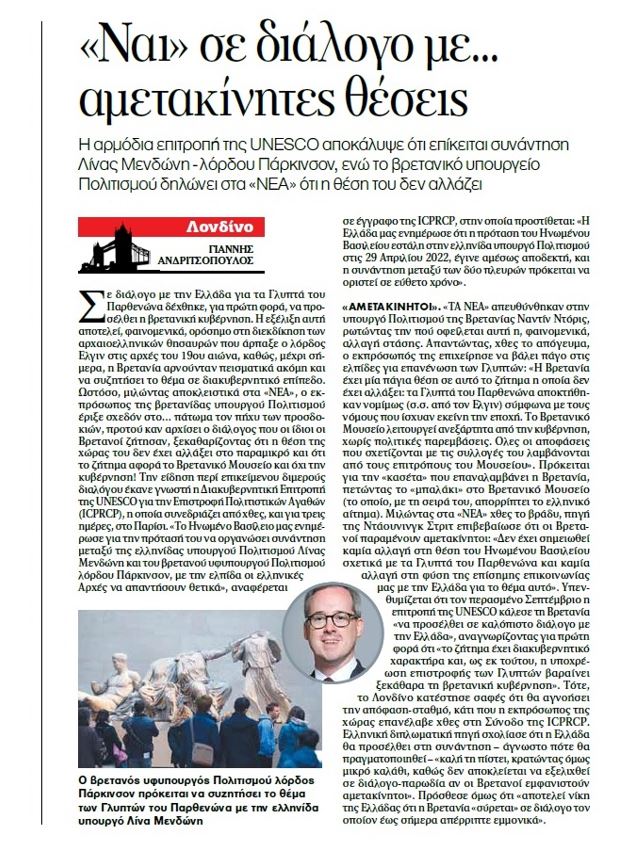
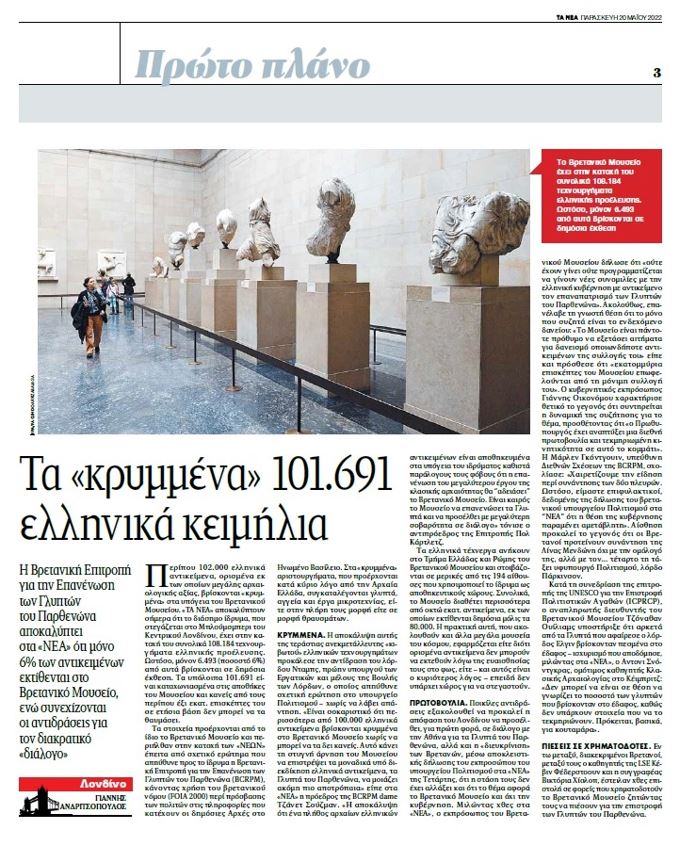
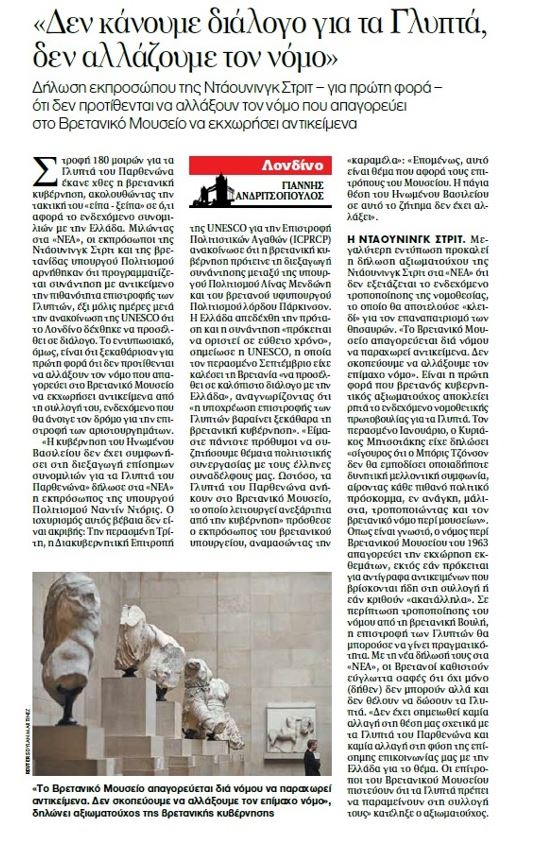
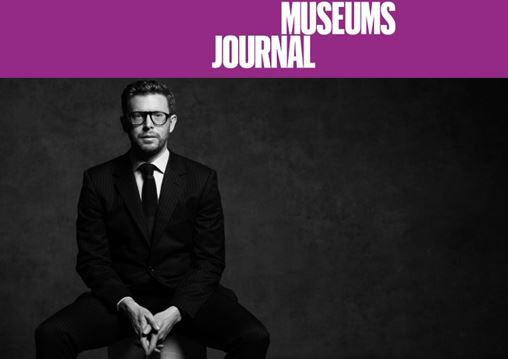

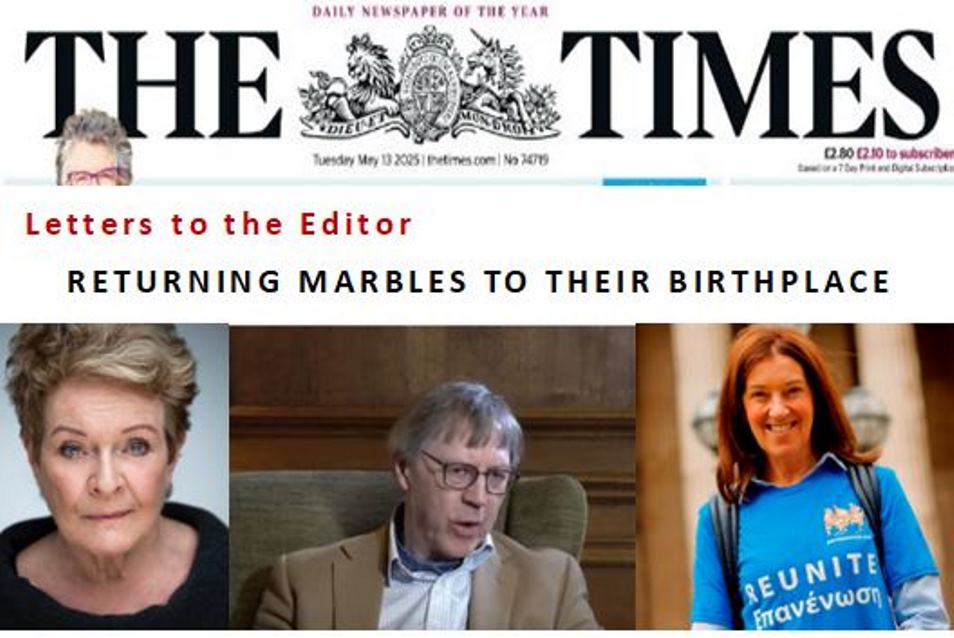

Comments powered by CComment